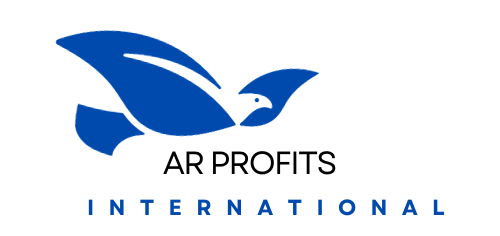Niche Selection for Freelancing
Selecting a freelance niche is a vital decision, as it will enable you to position yourself as an authority and attract more clients for greater profitability.
Finding your niche also allows you to work with clients that complement your skillset and interests, helping you find work without burnout.
How do Freelancers proceed to select a niche?
Finding your freelance niche requires research on demand for different services. Start by exploring online job boards and freelancing platforms to see what kinds of freelance work are in highest demand, or ask other freelance writers which type they specialize in – Kaleigh discovered hers after eighteen months when she became known for long-form eCommerce content writing – however remember that niche doesn’t close any door, it merely broadens it further!
Another effective strategy for selecting your freelance niche is analyzing past projects and clients, to help identify what type of work you enjoy doing and which services align with your passions and skill-set. For instance, copywriters could specialize in writing copy for eco-conscious brands to combine both writing skills with their interest in sustainability.
When choosing your freelance niche, it is crucial that it fulfills three key criteria. First and foremost is finding something you enjoy doing; then finding clients who require the service; finally offering premium experience to clients such as residential plumbing if you are a plumber – doing this will set yourself apart from competitors while making more money!
Tools to use to find a niche
Freelancing can be an extremely profitable venture, yet can also present unique challenges. Selecting the appropriate tools will help keep you organized and focused throughout your work process – they can assist in project management from inception to completion, track time and productivity levels, as well as keeping customers satisfied.
freelancers have access to several tools designed specifically for them as freelancers, but one of the most essential ones is an online portfolio. A well-crafted online portfolio will help attract clients while building your reputation as a writer – Adobe Portfolio or Behance are two easy-to-use platforms that integrate well with other applications for creating yours.
Mailchimp should also be taken into consideration by freelancers to expand their email list and promote their business. Free for use and providing features such as tags, segments and customized landing pages it allows freelancers to grow their mailing list quickly while automating marketing campaigns.
Zoom provides video conference calling and webinar software that is an indispensable asset to freelancers, enabling you to keep conversations going even when away from your desk, and you can set reminders so you don’t forget follow-ups with clients. Furthermore, its email search feature keeps your work flowing efficiently – perfect for quickly searching through over 100 million emails stored by companies or industries!
Meaning of Keywords and Keyphrases
Keywords are search terms people enter into Google or other search engines to locate specific information or websites, defining what each content or website is about and providing the foundation of on-site optimization. Keyword research is indispensable for freelancers hoping to attract more prospective clients online.
Freelancers who place priority on finding the appropriate keywords are more likely to gain potential clients and generate higher paychecks. Utilizing keywords relevant to their services or client intent are the best choices; trying to rank for unrelated words wastes your time.
Take your time when compiling a list of 7 to 10 keywords most relevant to you and your services, making a note of them and carrying it around for several days – add and delete words as necessary as you progress with this task.
If you need help selecting keywords, seek advice from friends, family and colleagues. Or search Upwork jobs to see what keywords are being used – then use those in your content and website pages.
Demands in a freelance niche
When selecting your niche, it is crucial that you take into account market demands. Selecting an industry with high consumer interest will allow your business to thrive while meeting customer needs while offering valuable products or services.
Finding an appropriate niche requires research of current consumer interests and online search patterns. You can utilize tools such as Google Trends or SEO research sites such as SEMrush or Ahrefs to help identify topics with high demand but low competition. Furthermore, social media and community groups may reveal what people are talking about.
Consideration must also be given to the size of your niche. If it is too narrow, standing out will become difficult; while too broad might make competition overwhelming.
Finally, it is essential to assess both risks and rewards associated with your niche selection. While it is wise to accept some level of risk when starting up a new business venture, be certain that any potential rewards outweigh them in terms of risk-reward. Answering this question will help determine if your business fits you well and has long-term viability; furthermore it allows you to become aware of your strengths and weaknesses that could influence niche choice decisions.
Audiences of a freelance niche
Niche selection is an integral component of freelance business success. By targeting specific groups of potential customers, niche selection can increase your odds of success and profitability while building loyal followings and becoming experts in your field. In essence, your niche should reflect both your personal interests and skills while fulfilling an actual need in the market. You can identify such gaps by researching competitors as well as gaps within it.
An effective place to begin is by understanding your target audience’s pain points. Use tools like Google Trends or Quora, for instance, to do this – these two resources allow you to search keywords over time and measure interest over time; plus they both can help identify common questions from within their respective target demographics.
Step two is determining if there is a market for your solution, which you can do by assessing competitors and demand in your target audience. Also consider whether or not your product or service has the potential for mass scale adoption, so as to avoid spending money on unnecessary marketing campaigns and to determine an ideal monetization strategy suited for your niche and target audience such as selling via affiliate links or membership models for ongoing recurring revenues.
Competitions in freelance niches
Step one in finding your niche is identifying your skills and passions that could help build a business. Step two should involve conducting market research to locate opportunities in an industry which meet these interests, ultimately helping you discover an area with high enough demand but low enough competition.
Once you’ve identified a viable niche, it’s crucial that you commit and work toward its success. This includes producing high-quality content while building relationships with your target audience. Furthermore, regularly assess feedback and data to adjust your strategy as necessary – this way ensuring your content meets audience needs while remaining competitive within its industry.
However, it’s essential not to become too focused in your niche; otherwise you risk running out of clients and struggling to make ends meet from your business. Furthermore, to attract new clients by becoming an expert in your field.
An important key to creating a profitable niche business is finding something to set you apart from competitors, which can be done by creating your unique selling proposition (USP). Your USP should clearly articulate how your products or services will benefit your target audience while differentiating you from competitors – something which only takes seconds online! To stand out and achieve success.




